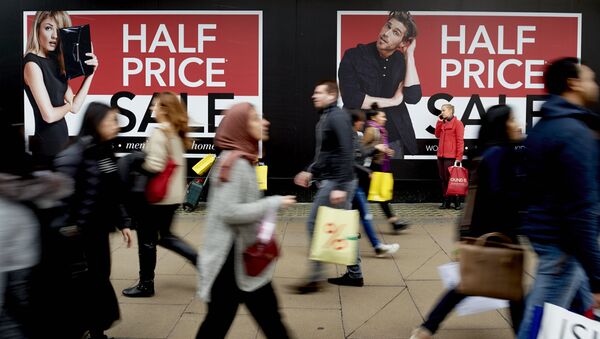Black Friday, a US-inspired shopping tradition where products like televisions are heavily discounted and only on sale on the last Friday in November, has spread in popularity around the globe.
#ReasonsToSkipThanksGiving Black Friday Madnesshttps://t.co/UEXOppzqvH
— FunnyShortVideos (@FunnyShortVidz) November 18, 2016
It attracts queues through the night and in many cases, provokes violent outbursts as people compete for positions outside shops to secure the best bargain.
I can't stop watching the UK #BlackFriday mayhem! People, please, get a little class. It's even not a British Holiday pic.twitter.com/m2EnRJgWs6
— Thomas Cheetham (@Tom_Cheetham98) November 29, 2014
Surfboardtttt 🏄. Black Friday Mayhem #BlackFriday #uk #asdablackfriday pic.twitter.com/kCdZQ3CWOi
— Naz | TheShoeChateau (@_theshoechateau) November 28, 2014
Buy Nothing Day, is also marked internationally on 25 November and has been around since the 1990s to encourage people to boycott Black Friday which organizers of the grassroots anti-consumerism group says "bullies" shoppers into buying things they don't need.
"The rules are simple. For 24 hours you will detox from buying stuff — anyone take part provided they spend a day without spending," a statement from the group reads.
"Deals make grown men act childish." Mark & John at a stand-off over 20% off. #BuyNothingDay @BuyNothingDay pic.twitter.com/ubQMkyFrrW
— Shane (@ShaneDesigned) November 27, 2015
The group's anti-capitalism rhetoric as seen on its website accuses Black Friday of sucking "the life out of small businesses, who cannot compete against the ruthless price-cutting."
"If you really need to shop on Buy Nothing Day, ignore the big retailers with their aisles of organized landfill and make a commitment to support local and independent shops and businesses."
The anti-capitalist day is growing in support with groups springing up in 60 countries, including Britain, US, Germany, Hong Kong, France and Canada.


